Refugees inside their own war-torn country -- Syrians continue to suffer
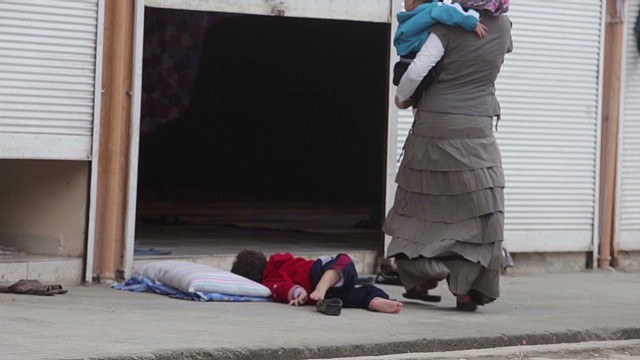
Millions displaced within Syria
STORY HIGHLIGHTS
- The United Nations estimates that 4.25 million people are internally displaced in Syria.
- Many people are now heavily relying on aid agencies to provide basic amenities.
- The U.N. says that for 2013 alone, aid of $1.4 billion is needed to deal with the crisis.
- The WHO says more than 50% of hospitals have been damaged or are non-operational.
According to the United
Nations (U.N), an estimated 4.25 million people are homeless inside the
country -- half of whom are believed to be children. Hundreds of
thousands of men, women and children have been left vulnerable after
being forced to relocate from their homes, often multiple times.
Without adequate shelter,
food and medical care, many people are now heavily relying on aid
agencies to provide basic amenities. The family of Ayesha (not her real
name) is among them.
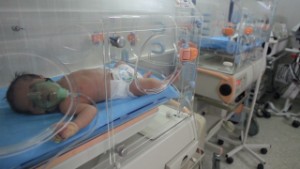 Syrian hospitals operate in secret
Syrian hospitals operate in secret
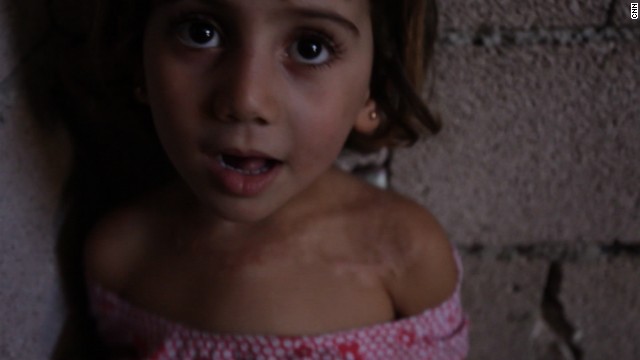 Millions displaced within Syria
Millions displaced within Syria
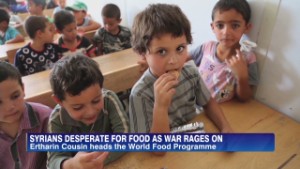 Syrians desperate for food as war rages
Syrians desperate for food as war rages
Ayesha says she fled her
hometown in northern Syria after a bomb destroyed her home, killing two
of her teenage children. She now lives in an abandoned building site
with her remaining children and grandchildren and she fears for her
family's safety, which is why she has asked not to use her real name.
Her four-year-old granddaughter carries a physical scar of the ongoing conflict -- after being burned during shelling.
Recalling the days she
lived in her own house and farmland, Ayesha says: "You have five people
being killed, at times six or 10 and 15. Every day they targeted us with
bombs, missiles and snipers."
Ayesha is one among the 6.8 million people the U.N. deems to be in urgent need of protection and assistance.
The destruction of homes and land has forced many others to abandon their old lives.
Zenat (not her real
name), a young mother, says she fled after her house was bombed. Her
four-year-old son suffers from burns from that day.
"He was burned while he
was at the house, they bombed the house, which collapsed on him, and
there is no available treatment for him," she says.
Syria's medical system
has suffered a heavy blow in this nearly three-year-old conflict.
According to the World Health Organization (WHO), more than 50% of
Syrian hospitals have been destroyed or are non-operational.
That means, for a mother like Zenat, immediate medical care is unavailable even in dire situations.
"We did not get any
help, there are no doctors, where shall we take him? My heart burned
where I saw him this way, it was very hard feeling for me," she recalls.
According to data given
to the WHO by Syrian health authorities, as of July 2013, 60% of the 91
public hospitals across the country have been affected by the conflict.
Of those, 20 have been damaged, and 35 are out of service.
Many Syrian doctors have
also fled the country and for aid agencies trying to provide medical
relief to the needy, Syria remains one of the most dangerous places to
work.
Some of the heavily
damaged towns in Syria have even less access to healthcare. Syria's
health ministry estimates that in the governorates of Deir-ez-Zo, Idleb
and Aleppo, 70% of health centers are either damaged or out of service,
the WHO said.
Aid needed
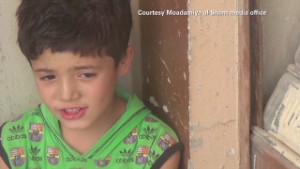 Syrian children suffering malnutrition
Syrian children suffering malnutrition
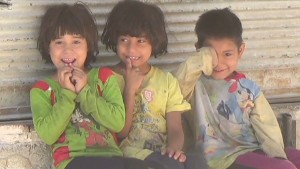 Thousands of children dying in Syria
Thousands of children dying in Syria
The United Nations
Security Council is trying to ensure aid reaches those suffering inside
Syria -- calling on the government to allow cross-border deliveries and
on all combatants to agree on humanitarian pauses in fighting for aid
convoys.
Regardless of the
dangers of operating in the middle of a battlefield, several
Non-Governmental Organizations (NGOs) are trying to establish medical
care, with some hospitals even operated secretly. British-Syrian run
charity Hand in Hand is one of them. It helps operates 37 clinics and
hospitals within Syria, supported largely by donated medical supplies
and volunteer doctors.
In a makeshift clinic in
Idleb province, Doctor Mohammed Abdul Salam, a pediatrician and medical
director of a children's clinic run by the charity says: "There were no
incubators in areas outside the government's control for premature
babies.
"In besieged areas,
private hospitals used to charge high prices and people could not afford
the costs of care, and that's why there was high infant mortality."
The U.N. body for
assistance in Syria -- the Office for the Coordination of Humanitarian
Affairs -- estimates that for 2013 alone aid of $1.4 billion is needed
to deal with the growing humanitarian crisis inside the country.
Destabilization of
Syria's population will have an impact for many, many years to come. But
for now, immediate assistance is needed for millions living under dire
conditions.

No comments:
Post a Comment